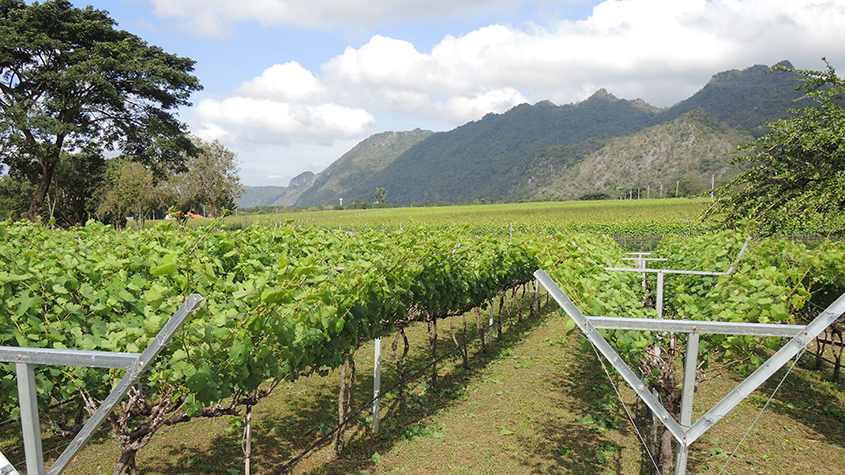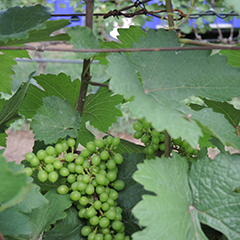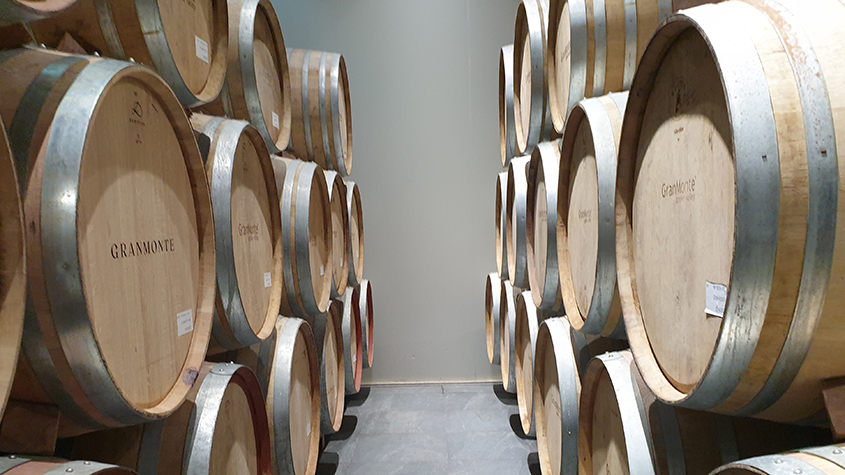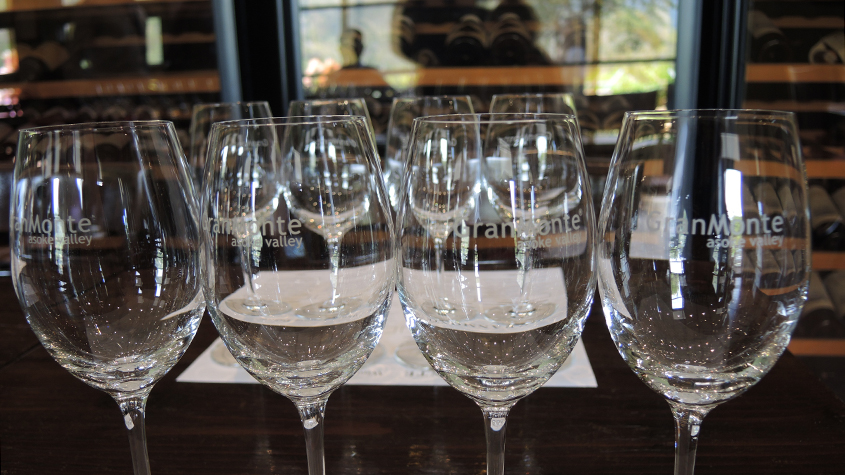From Dream to Thai Award-Winning wines with Tropical Accents and GI Recognition
Producing wine in Thailand was the dream of two wine lovers, Visooth and Sakuna Lohitnavy. They decided to embark on the adventure, bought a 12-hectare plot in the Asoke Valley, and started planting vines. Some 23 years later, their family produces some 23 different types of wines for all tastes, and their wines enjoy a geographical indication.

The Asoke Valley lies at the doorstep of UNESCO World Heritage site Khao Yai National Park, at the foot of the Khao Yai mountain range, which inspired the winery’s name: GranMonte.
GranMonte participated in a Regional Forum on Strengthening Brands, Designs, and Geographical Indications organized by the Department of Intellectual Property of Thailand, in collaboration with WIPO.
Visooth and Sakuna Lohitnavy were among early grape growers in Thailand, according to their daughter, Visootha (Nikki) Lohitnavy, General Manager and Oenologist of GranMonte, who was a speaker at the Forum. Most of the wineries in Thailand are located in the Khao Yai area, she said, adding that winemaking is a very young industry in the country.
GranMonte Vineyard and Winery – Producer of Wines with Tropical Aroma
GranMonte produces different types of wines, including Syrah, Cabernet Sauvignon, Chenin Blanc, and Verdelho. “When you drink a wine coming from a certain grape variety, it must display the characteristics of the grape,” Nikki explained. “For example, Cabernet Sauvignon must have a bell pepper flavor, combined with red and black fruits.” The key characteristics would be the same across all countries, but differences are noticeable according to the soil, environment, and climate, she said. GranMonte’s Cabernet Sauvignon has a unique aroma compound including dry spices and cloves.

The soil of the Asoke Valley has a high percentage of red clay, which has a parent material of limestone, Nikki said. It is rich in calcium carbonate and mildly acidic, with a deep subsoil, reaching 1.5 to 2 meters, which are ideal conditions for wine growing.
As a result of the winery’s environment, all the wines produced have particular characteristics, Nikki explained. White wines, for example, carry a taste of pink guava, ripe pineapples, and mango, while the red wines display earthy, leathery, and spicy flavors.
Because of a high tax on wines in Thailand, GranMonte wines are high-end products. They are sold at the estate, to hotels, restaurants, and private customers in large cities, Nikki said.
GranMonte Wine Production in Asoke Valley’s Tropical Climate

Growing wines in a tropical climate calls for specific requirements. The Asoke Valley enjoys a microclimate. Lying at 350 meters above sea level, the valley is protected from storms and heavy rain by the Khao Yai Mountain and enjoys dryer weather than the rest of Thailand. This particular location also gives the valley a wide difference between day and night time temperatures, which in the ripening season ranges from 5°C at night to 25°C during the day.
Because winter temperatures do not drop below 0°C, unlike in Europe for example, vines in tropical climates keep growing and have no resting period. To mitigate that problem, GranMonte prunes vines twice a year, once in April, after all the harvesting is done, and once in October. Grapes are picked from late January to the beginning of March, depending on the grapes’ varieties. Grapes are hand-picked during the night, when it is the coldest, before 6 am, to preserve the quality of the grapes.
GranMonte also uses a precision farming system called ‘Smart Vineyard’, which integrates a microclimate monitoring system, helping the estate to best manage the tropical conditions
The estate produces conventional and organic wines, although the organic parcels have a smaller yield.
Khao Yai Wine Geographical Indication
Nikki and her sister Mimi inherited their parents’ passion and stayed with the family business. Nikki, who graduated from the University of Adelaide in December 2008 with a bachelor’s degree in Oenology with Honors in Viticulture, also actively participates in the Thai Wine Association, which was established in 2004 and includes five members. The association has several objectives, such as establishing winemaking quality standards, labeling requirements, and raising the awareness and image of Thai wines.

The Khao Yai Wine Geographical Indication is registered by Granmonte Vineyard and Winery together with the Thai Wine Association and was granted in 2018.
At the beginning of the GI registration, the main difference was felt on the production side with better control of the growing and manufacturing process, which led to better quality. In terms of marketing, because in Thailand it is not possible to advertise alcohol, it was difficult to use the GI as a marketing asset.

However, Nikki said, through DIP events, such as the Regional Forum and the Thai Government’s events, the GI can be showcased, in particular for the export market. Gradually, the GI started to become a marketing asset, she said.
GranMonte, whose wines have won numerous awards, exports some 20 percent of its production to Taiwan, Singapore, Japan, South Korea, France, Sweden, and Switzerland.
Advocates of Sustainable Viticulture
GranMonte prides itself on sustainable viticulture practices, which guarantee the quality of the wine grapes in the vineyard. As part of that sustainability effort, the winery uses grape skins from the fermentation to make grappa, and seeds and stems to make compost. In the same manner, waste wine is used to make wine salt and other products sold in the estate’s shop. GranMonte also aims to encourage agro-tourism and hosts a restaurant and a small accommodation facility.
Currently producing some 100,000 bottles of wine per year, GranMonte is set to reach 300,000 bottles per year in the next four years, and increase its export market share, according to Nikki. The GI’s specification includes a requirement that wines be made exclusively with Thai-grown wine grapes. Nikki hopes the GI will convince Thai producers who do not use Thai grapes that there is a market and demand, and will encourage them to grow their own grapes.
Source: WIPO

 Client Focus
Client Focus